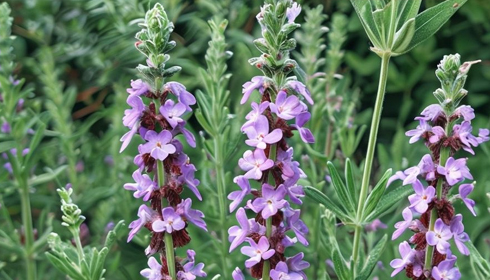
niversity of Wollongong Study Finds Plant-Based Foods Like Elderberry and Sage Support Neuroprotection
Researchers at the University of Wollongong (UOW) have conducted a groundbreaking study that reveals the reasons certain plant-based foods deliver advantages that extend beyond mere nutritional value, especially in enhancing brain health and safeguarding against oxidative stress.
Naomi May, a PhD candidate at UOW's School of Medical, Indigenous, and Health Sciences, spearheaded a study that meticulously analyzed six specific plant-based foods: the Queen Garnet plum, black pepper, clove, elderberry, sage, and lemon balm. The journal Food & Function publishes the research, clearly demonstrating the antioxidant properties of compounds found in these foods, which play a crucial role in protecting neurones.
“Numerous plant-based foods undeniably contribute to enhancing our brain function and overall health,” May asserted. “However, up to this point, it has remained unclear which intricate combination of compounds delivers the strongest impact.”
The research clearly identified two major classes of plant compounds—phenolics and terpenes—that are responsible for the observed benefits. Phenolics are responsible for the vibrant colors of plants, and terpenes define their distinctive flavors and fragrances. Advanced mass spectrometry may be employed to measure the individual compounds and their impact on oxidative stress in neurone-like cells.
The study clearly identified two major classes of plant compounds—phenolics and terpenes—as essential contributors to the antioxidant benefits observed in specific plant-based foods. Phenolics, which are the driving force behind the vibrant colors of plants, and terpenes, which are recognized for their distinctive flavors and fragrances, undeniably play complementary roles in safeguarding brain health. Naomi May used advanced mass spectrometry to look at these compounds and how they affected oxidative stress in neuron-like cells. This gave her important information about how they might protect neurones.
Phenolic-rich foods like Queen Garnet plums, elderberries, and cloves demand attention for their impressive levels of quercetin derivatives. These compounds are crucial in preventing oxidative stress-induced cell death and effectively chelating copper ions, which directly contribute to neuronal damage. Conversely, foods boasting high terpene concentrations, such as black pepper, clove, and sage, dominate the scavenging of reactive oxygen and nitrogen species, significantly enhancing antioxidant defenses.
The study examined not only whole foods but also over-the-counter supplements, focusing specifically on those that contain astragalus and lemon balm. The supplements clearly showcased substantial antioxidant effects, with the astragalus-rich product standing out for its superior phenolic concentration. These results show that phenolics and terpenes play different but connected roles in protecting neuronal health and fighting oxidative stress, whether they come from natural plant sources or dietary supplements.
“This research is the first to examine the relationship between these species of compounds and the varying antioxidant abilities in these plants,” May asserted.
This study advances our understanding of how plant-based diets effectively manage conditions linked to oxidative stress and neuroinflammation, including neurodegenerative diseases.
“What makes lemon balm so calming?” Sage possesses remarkable properties that can significantly benefit the body. Sage's anti-inflammatory and antioxidant qualities not only support overall health but also have the potential to aid digestion and boost the immune system. Incorporating sage into your routine can lead to enhanced well-being and vitality. Elderberries are incredibly beneficial to our immune system for several reasons. “We have data now to start addressing these questions,” May asserted.
The researchers are determined to examine the phytochemical profiles of these foods, with the goal of creating a powerful toolkit of plant-based options to enhance brain health. “The potential to use plant-based foods as a crucial component in managing conditions stemming from neuroinflammation and oxidative stress, including neurodegenerative diseases, is significant,” she asserted.
A team of researchers from UOW, including Dr. Jiahua Shi, Dr. Julianna Lys de Sousa Alves Neri, and Associate Professor Katrina Weston-Green, among others, co-authored the study.
The findings decisively pave the way for a rigorous exploration of the therapeutic potential inherent in plant-based foods. We must conduct further studies to translate these results into clinical recommendations; the research clearly emphasises the necessity of incorporating a diverse range of plant-based foods into diets for improved brain and overall health.
“Grasping the phytochemical profile of plant foods is essential for recognizing their benefits and enhancing our brain health,” May asserted.